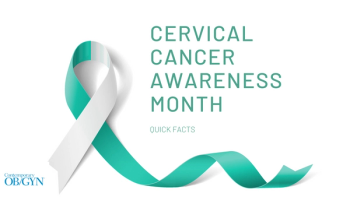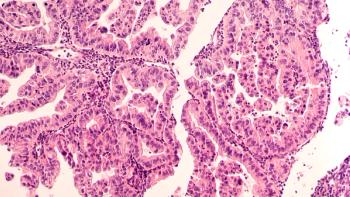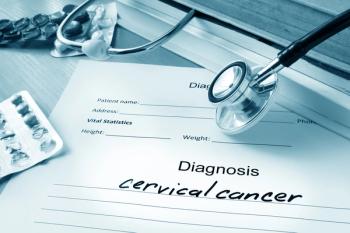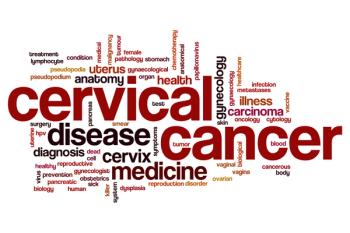
This interview features Sangini Sheth, MD, MPH, as she discusses the latest research on HPV and cervical cancer.

This interview features Sangini Sheth, MD, MPH, as she discusses the latest research on HPV and cervical cancer.

Women vaccinated following conization experienced a slightly lower, though not statistically significant, rate of recurrence of high-grade cervical dysplasia, according to a recent study.

In honor of Cervical Cancer Awareness month, Contemporary OB/GYN® will publish weekly slideshows with factual information, statistics, and more.

Since radical hysterectomy does not improve survival, the procedure should be replaced with definitive chemoradiation, according to the ABRAX study published in the European Journal of Cancer.

While no difference was shown in disease-free survival rates between surgical and non-surgical staging methods, laparoscopy benefits patients with International Federation of Gynecology and Obstetrics (FIGO) stage IIB cervical cancer. Surgical staging also has a cancer-specific survival benefit, according to a study published in the International Journal of Gynecological Cancers.

With coronavirus disease 2019 limiting the availability of health resources, research using a comprehensive review and expert opinion has set pandemic treatment protocols for gynecological cancers.

In honor of Cervical Cancer Awareness month, Contemporary OB/GYN® will publish weekly slideshows with factual information, statistics, and more.

“Reaching these women is critical to reduce cervical cancer rates.”

Pembrolizumab plus lenvatinib induced a statistically significant and clinically meaningful improvement in overall survival, progression-free survival, and objective response rate compared with chemotherapy in patients with advanced endometrial cancer after prior systemic therapy in the phase 3 KEYNOTE-775/Study 309 trial.

A new study found that the rate of cancer in adolescents and young adults increased by 29/6% between 1973 and 2015.

The vast majority of cancer survivors reported that they experience sexual side effects after chemotherapy, radiation and other cancer treatments according to the results of a survey presented at the annual meeting of the American Society for Radiation Oncology.

Heavily pretreated ovarian cancer patients who received a combination therapy of a novel engineered interleukin-2 (IL-2) cytokine plus pembrolizumab achieved an acceptable safety profile, according to a small cohort of an ongoing phase 1/2 trial.

From OncLive, five experts share their perspectives and opinions on the latest research related to triple-negative breast cancer.

Women with high-grade cervical dysplasia are much less likely to have recurrence after primary conization if they undergo laser conization than a loop electrosurgical excision procedure (LEEP), according to a 5-year follow-up study.

In a recent podcast episode from OncLive, Don S. Dizon, MD, FACP, FASCO, discusses the primary physical and residual psychological effects of gynecologic cancers on women’s sexual health.

Findings from a new study by Australian researchers suggest that physical activity should be incorporated into cancer care during and beyond treatment.

Based on the literature, a bundled intervention was created that included dual antibiotic prophylaxis (cefazolin and metronidazole) aimed at reducing surgical site infections for all patients undergoing hysterectomy.

Training gynecologic oncologists to perform cytoreduction for advanced ovarian cancer can result in better outcomes for patients, according to results of a new study

The study found that both patient- and treatment-related factors contributed to noncompliance.

Nearly two-thirds of women newly diagnosed with endometriosis filled an opioid prescription within the first year, according to a US population-based claims study.

More than 100 million women worldwide use IUDs as contraception so these findings could have global implications.

A new study suggests that certain sexually trasmitted infections, such as herpes simplex virus 2, may have a role in the development of certain types of ovarian cancer.

New research indicates that risk of high-grade cervical neoplasms is lower with copper (Cu) intrauterine devices (IUDs) than with the levonorgestrel-releasing intrauterine system (LNG-IUS).

Published in JAMA Network Open, results from the first US trial of home-based sampling for human papillomavirus show that mailing kits to underscreened women could increase cervical cancer screening.

State-level restrictions on reproductive services led to shuttering of nearly 100 women’s health clinics in the United States over a 4-year period.